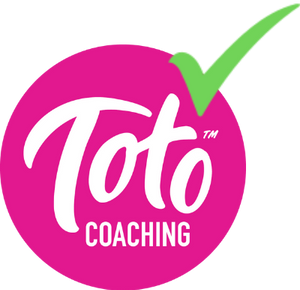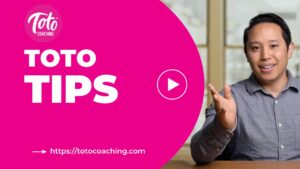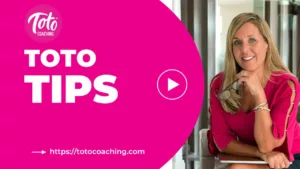The header row is the first impression users get when they click on your website.
Watch this video or read the article below
![]()
Transcript
Now let’s discuss what not to include on your header row. Avoid placing ads or unrelated content in the header as this can be distracting and make your website look kind of unprofessional.Remember, that the header row should be clean, visually appealing, and focused on your brand and website navigation.
Overloading it with too many elements or having too many elements in the header row can be overwhelming for visitors, so just be sure to prioritize the most important elements there.Don’t use too many colors or fonts. Using too many different colors or fonts in the header can make that header row look cluttered and unprofessional too.
As we design our header rows, we also need to consider how they’ll reformat for mobile devices. And this is important because more and more users are accessing websites primarily from their smartphones and tablets.Your theme or page builder will most likely create this for you automatically, but you may have some ability to design it as well.Your menu will likely be hidden behind a hamburger menu to collapse the navigation items, or maybe a button that says Menu.
In any case, check how it looks and behaves on a phone before you go live.While you’re checking the menu on mobile, check the rest of your header. Make sure your logo remains visible and that any call to action buttons or contact information are still easily accessible.
Let’s go over this a little more in detail
The No-Gos in Your Header Row
When it comes to the header row, less is often more.
The term “header row” typically refers to the top section of a webpage, often containing essential elements that provide information and navigation options for users.Common features found on nearly every website include, but are not limited to, the logo, navigation menu, contact information, call-to-action buttons, and search bars. Let us look at each feature;
Logo
The logo functions as a visual representation of the brand or website and plays a crucial role in brand recognition. A common convention is to place it in the top-left corner, as users frequently associate this location with the brand identity. Please refer to the example provided below.

Navigation Menu
The navigation menu is a set of links that direct users to different sections or pages of the website. It acts as a roadmap, helping users easily explore and access relevant content. Consider organizing menu items logically for a seamless user experience.
In the example image provided below, the web pages (Full Course, Fast Track, Visit Toto Coaching, and Sign In) in the yellow rectangle are the web pages found in a navigation menu.

Contact Information
Including contact information, such as a phone number or email address, enhances user trust and accessibility. Users may need to contact the website owner or support, and having this information readily available is essential. Here’s an illustration of a website where contact information is incorporated into the header section:

Call-to-Action Buttons
Call-to-action (CTA) buttons prompt users to take a specific action, such as signing up for a newsletter, making a purchase, or exploring featured content. Design these buttons with compelling text to encourage user engagement. Common examples of CTA buttons include phrases such as ‘Sign Up,’ ‘Shop Now,’ and ‘Get Started’.

Search Bar
The search bar allows users to quickly find specific content within the website. This is particularly valuable for larger websites with extensive content. Ensure that the search functionality is intuitive and provides relevant results. See the image below with an example of a header with a search bar.

Mistakes to Avoid When Creating an Effective Header
When designing your header row, it’s crucial to find a harmonious balance—providing essential information while maintaining a layout that is both pristine and visually captivating.
Say No to Ads and Unrelated Content
The header row isn’t a billboard for random ads or unrelated content. Placing such elements there might seem tempting, but it can be a major turn-off. Keep it clean, focused, and professional. Your audience is here for your brand, not distractions.
Avoid Overloading with Elements
Less is more, remember? Overloading the header with a barrage of elements can overwhelm visitors. Prioritize the essentials—your logo, navigation, and key actions. A cluttered header is like a messy desk; it doesn’t create a positive user experience.
Watch Your Colors and Fonts
While variety is the spice of life, it might not be the best recipe for your header. Too many colors or fonts can make your header row look chaotic and unprofessional. Stick to a cohesive color scheme and font style that aligns with your brand identity.
To Search Bar or Not to Search Bar?
At Toto Coaching, we’re a bit cautious about search bar unless your site is a giant or research-focused. Often, search results can be wonky, especially on platforms like WordPress. If you decide to include one, be meticulous about what shows up. Nobody wants thank you pages cluttering search results!
Mobile Responsiveness Matters
In a world where mobile rules, your header needs to adapt.
Consider Mobile-Friendly Design
The majority of users access websites from their smartphones or tablets. As you design your header, consider how it will reformat for these devices. Most themes or page builders handle this automatically, but it’s wise to double-check.
Hamburger Menus and Beyond
A hamburger menu consists of three horizontal lines stacked on top of each other, resembling the appearance of a hamburger.When the hamburger menu is clicked or tapped, it typically reveals a hidden navigation menu with various options such as links to different pages, settings, or other features.
On mobile, your menu may transform into a hidden gem behind a hamburger icon or a labeled button. Ensure that this navigation style is intuitive for users. Test it out before going live to avoid any surprises.
Logo Visibility and Action Items
During your mobile checks, pay special attention to your logo. Is it still visible and recognizable? Confirm that crucial elements like call-to-action buttons and contact information remain easily accessible, contributing to a seamless user experience.
Success is in the details, especially when it comes to the first thing users see—the header. Craft it with care, and your audience will thank you with clicks and engagement.
At Toto Coaching, we offer affordable website design classes to help you master headers and more. Sign up today and take advantage of our budget-friendly payment plan. Instead of one lump sum, you can split your payment into 3 monthly installments for our full web building bundle.
This is the Toto way.

Read More Tips!
About the Author
Are You Searching the Internet for Help Building Your Website or Making it Better?
We are here to help you!!
Check out the entire DIY Website Building Course
where we walk you through building a website
from Start to Finish!
What are you waiting for? Let's get your website built!!
Not sure yet? But still wondering how to learn web design? Try a few lessons for free!
Sign up for a no-commitment free trial. You will be given access to two of our actual website building class lessons. One lesson is a shorter and more simple lesson, and the other is a longer, more involved lesson so that you can see the types of lessons we offer and you can get a feel for our coaches and what you will learn.
What are you waiting for? Let's get your website built!!


